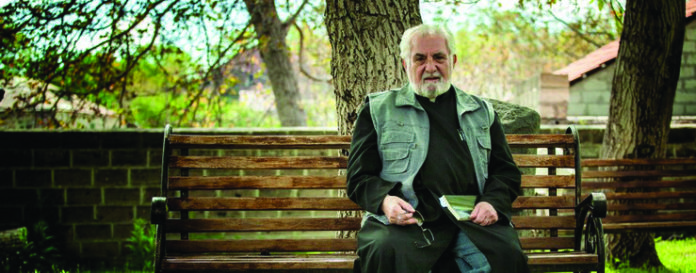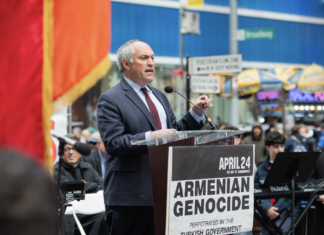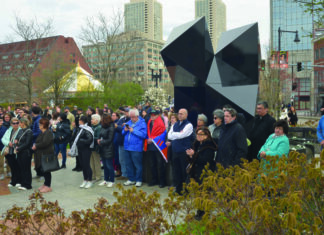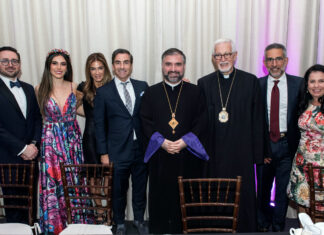By Fr. Karekin Kasparian
Note: This talk was originally given in 1999 on the occasion of Der Dajad concluding his pastorate at St. James and getting ready to move to Armenia.
I have known Der Dajad for 47 years and have watched him grow from the charming chairman of the Armenian Church Youth Organization of America (ACYOA) Jrs. in Worcester to a charmer Vice Chairman of the Diocesan Council, a troubleshooter in the parishes.
Arthur, Artie, Junior or Junie – his mother, the late Diramayr Rose Vartuhi Davidian called him, came to church every Sunday and fully participated in the Divine Liturgy almost like a priest and received Holy Communion every Sunday. His active participation — I should say guidance – in the youth activities drew the attention of the congregation and he became the darling of the parish and the object of its pride and joy. They say “it takes a village to raise a child.” Aside from the powerful influence of his devout mother and delightful father, the entire congregation of the Church of Our Savior extended its love and care to this fast-growing young man who was, as an avid reader, learning everything about our church, culture and history.
As a teenager, he had two role models, a layman, Ralph Yagjian, and a clergyman, Archbishop Tiran Nersoyan – two of the best. Ralph was a dynamic youth leader, constantly learning and teaching about the church and Christianity, and inspiring and challenging people with basic and arresting questions about essentials in life and love for essentials. He was the instigator and the leading proponent in the parish to bring a seminarian from abroad to study and speak English in order to rap with the youth and minister to their needs, with the hope that he would become the first English speaking pastor of that first Armenian church in the country.
Arthur, inspired by Ralph, supported his efforts as the leader and the voice of the youth, to bring this young seminarian. By a unanimous decision of the parish, the Primate was approached to arrange for an assistant to the priest, Fr. Hagop Mekhjian. I became that fortunate seminarian who was brought to Worcester to study. The more Arthur learned about seminary life, the more enthused he became to attend as soon as possible.










